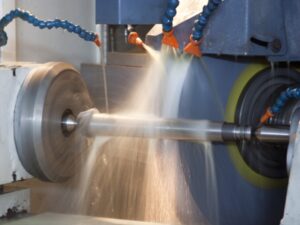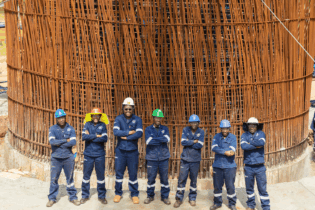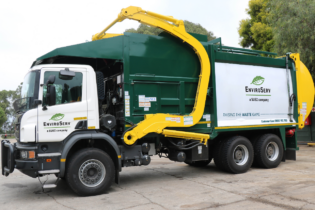Veolia Services Southern Africa is a water, waste and energy solutions driven company that specialises in the design, supply, procurement and commissioning of water and wastewater treatment plants in multiple industries. WASA talks to the Veolia team about industrial effluent in the mining and metals and food and beverage industries.
“Recent changes at Veolia Services Southern Africa have meant that our primary focus on water treatment has now shifted to include waste and energy solutions across Sub-Saharan Africa. Veolia offers solutions in three paradigms: waste, water and energy,” says Miles Murray, director of Business Development, Veolia Services Southern Africa. The company is committed to the United Nations Sustainable Development Goals (SDGs), aimed at achieving a better and more sustainable future for all. “Achieving 13 out of the 17 goals, to a lesser or greater extent, depending on the context, has already been well established through the various water treatment solutions that we offer. This includes water reuse, wastewater recycling, water scarcity solutions and zero liquid discharge to name but a few,” he adds. Increasing competitiveness When dealing with wastewater, companies are faced with three options:- Recover – Wastewater recovery is the extraction of valuable resources such as clean water and metals from industrial effluent
- Reuse – Industrial water reuse and recycling is the process by which wastewater produced from one source is treated to be reused in the same process or recycled for another.
- Discharge – When industrial effluent (that is within certain legal parameters) is discharged into the municipal sewer.
- Sediment through a refining process of filtration, decantation and clarification
- Bacteria by disinfection through mechanical and chemical methods
- Micropollutants by microfiltration or clarification
Processed water that could not be reused can be discharged within the municipal sewer (if the water quality falls within certain limits) and waste that cannot be treated can be sent to either hazardous landfill or an ordinary landfill.
Delport adds that the primary drivers for reuse come from an operational expenditure point of view. “The high volumes of water used during the overall manufacturing process represent a significant expense and Veolia focuses on reducing costs through better water and wastewater management.” The reduction of energy is another focus point, and this is done by focussing on utility circuits like compressors, boilers, cooling and chiller circuits. As a global company, Veolia works closely with the top five mining companies in the world. “Veolia’s expertise guarantees the complete management of the entire water cycle – a vital component for the smooth operation of our customers’ businesses in the mining industry. As a water treatment specialist, we provide a full range of water services for mining, including preliminary and detailed engineering, provision of standard and custom equipment, project management and maintenance services, as well as long-term operation or temporary mobile water solutions.” Food and beverage Food and beverage processing faces environmental and sustainability challenges: high energy and water consumption and high-volume waste production combined with strict hygiene and food security regulations. “Although not the most water-intensive industry, water quality is a crucial issue for the food and beverage sector – water purity must be at the right level so as not to alter the characteristics of the food and beverage products. As water cycle experts, we also help meet regulatory and environmental compliance through treating wastewater streams and reducing water consumption. Treated water quality must be within client specifications to mitigate finished product contamination risks,” says Chad Lawrence, business development manager. In South Africa, the food and beverage industry are particularly concerned with water security, as well as inconsistent quality of municipal water. Veolia has the technology to treat this water to the SANS 241 standards and treat effluent and secure water supply by finding new water sources to replace municipal water such as treating groundwater or collecting rainwater and recycled wastewater to be used for the process. “We have seen a significant increase in water recovery projects where the effluent stream is treated to water process specifications for reuse in the plant or even potable water reuse, tying into the zero liquid discharge approach,” notes Lawrence. Significant progress has been made within the waste valorisation sphere where organic waste is turned into biogas that can fuel a plant. Organic waste is fed to an anaerobic digester, offering a dual benefit for food and beverage facilities. Veolia simultaneously treats a wide range of waste and wastewater streams while creating energy-rich biogas as a by-product that can be used to produce green electricity or heat. Challenges The manufacturing environment is never stable, making the inflows vastly different. Water treatment plants work within set parameters and issues arise when the plant has to work outside these design parameters. “There needs to be a greater focus on change management. Veolia values partnerships with its customers, there needs to be constant communication. We turn wastewater into a resource for our clients. It’s a complex, technical process, but we have the expertise and knowledge and work closely with our clients to achieve this,” concludes Murray.






